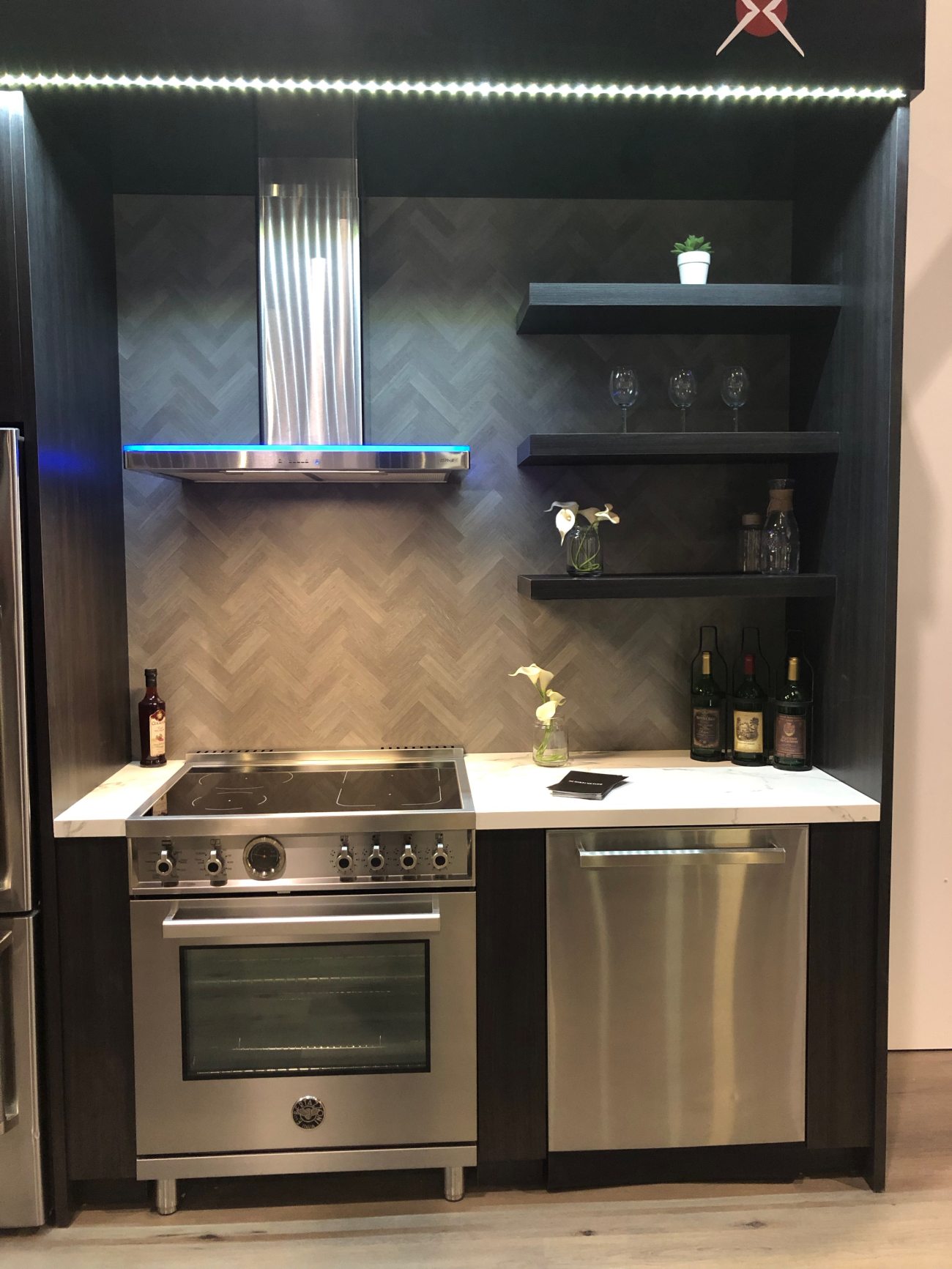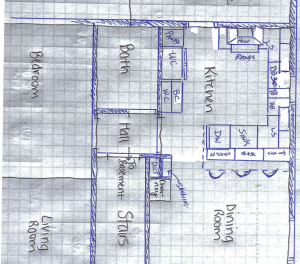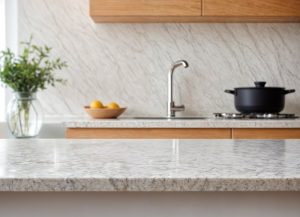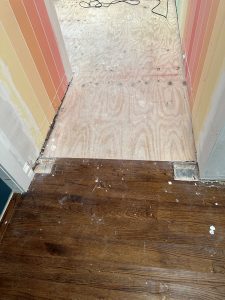
Despite taking up only a small amount of kitchen space, the backsplash design has a significant impact on the appearance of your kitchen. Outdated backsplashes will make the entire space look dated. Kitchen backsplashes also contribute significantly to the functionality of your kitchen by protecting your walls from scuffs, stains, and flying food, all of which are common in this busy area.
Kitchen backsplash trends, like all kitchen styles, are constantly being reinvented with new styles. Fortunately, changing the backsplash does not require a significant investment. You might just decide that your outdated backsplash is due for a refresh, and another choice may just help your kitchen function better than ever.
Outdated Backsplashes
Outdated backsplashes are designs that have not aged well, either because they tie your home to a specific era or because they do not perform well. As with all trends, this list is based on the opinions of a select group of people. If you have a backsplash you love, keep and enjoy it, despite what any designer or real estate professional has to say.
Small Mosaic Tile
Small form tiles, also known as mosaic tiles, are a historical form of decorative art that enjoyed a brief period of popularity in backsplash kitchen design during the 1990s. Many of these kitchen backsplashes were used in kitchens designed after historic European kitchens and had the colorful and decorative appearance of old-world mosaic tiles. Others featured small, monochromatic tiles with a contemporary design.
This tile style has lost favor with many interior designers due to its overly busy patterns and colors, as well as the sheer number of grout lines that surround them. This tile style takes center stage, when it should be a supporting character in the kitchen design. The numerous grout lines make this tile style difficult to clean and maintain.
Glass or Highly Reflective

Glass tiles or other highly reflective elements on a backsplash are not a good idea for a variety of reasons. The single most important reason is that they show every speck, smudge, or drop of food, making them difficult to keep clean. These surfaces also live up to their name and reflect well, which can make your kitchen design appear busy and cluttered. Homeowners today prefer backsplash designs that complement the overall design of their kitchen. This style, which was popular in contemporary kitchens, appears too flashy for today’s organic and practical aesthetic.
Some Subway Tile

The outdatedness of subway tiles is controversial. On one hand, subway tile is a classic shape that first appeared as a modern tile in New York subways in the early 20th century and has been appearing in bathroom and kitchen design ever since. However, this tile shape has grown in popularity over the last two decades, resulting in oversaturation in the design atmosphere.
While many designers and homeowners are ready to move on to different tile shapes, others prefer the classic look. If you enjoy subway tile, consider using it in unconventional ways. Avoid white subway tile and the horizontal running bond pattern. Consider using brightly colored subway tile in patterns like vertical, basketweave, and herringbone.
Cement Tile

Cement tiles, like encaustic tiles, can look stunning as a backsplash, but most people agree that they do not wear well in this application. Because cement is porous, these tiles can easily stain with food substances such as wine, sauce, or oil if not properly sealed. Sunlight can fade the color of these tiles, so they are not suitable for areas with direct sunlight. Cement tiles are also more susceptible to etching by vinegars, citrus products, and harsh cleaners.
Low Backsplashes

Backsplashes are an excellent way to enhance the aesthetics of your kitchen, and using a low backsplash that only covers a portion of the wall is a missed opportunity. Many times, prospective homeowners see this option as a low-cost substitute for a comprehensive backsplash design.
These backsplash types also do not function well. The primary function of a backsplash is to protect the wall above the countertops. Low backsplashes are ineffective at preventing stains and splatters caused by water, oils, and other food debris on the wall. This backsplash design also lends to an unfinished or disjointed appearance in the kitchen.
Pebble Tile

Pebble tile backsplashes have a look that mirrors the appearance of natural pebbles. These “tiles” are made by affixing tiny pebbles to a mesh surface, which facilitates an easier installation process. Pebble tile backsplashes were popular with rustic interior styles. Pebble backsplashes are an outmoded style owing to their heavy texture, which traps food and debris, making them difficult to keep clean. In addition, pebbled tiles have a busy appearance that contrasts with today’s simple and streamlined aesthetic.
Themed Tile

Themed tiles are inherently less versatile than more generic tile styles and do not complement all countertop and cabinet color schemes. This makes them less appealing and more restrictive to potential buyers who do not share the previous owners’ style and color preferences. Themed tiles also tend to date quickly because they are closely associated with specific time periods and color preferences from different decades.
Peel and Stick “Tile”

Peel and stick tiles, also known as self-adhesive tiles, are a quick and inexpensive option for backsplashes, but they may not be the best long-term solution. Peel and stick tiles are made of lightweight materials that will not withstand the wear and tear that backsplashes must endure. Most are not water-resistant, so they can deteriorate over time or with the constant wiping required by backsplashes.
New Backsplash
The best backsplash trends right now are those with an organic and natural aesthetic, as well as those that are functional and easy to maintain.
Single Slab Natural Stone

Single slab natural stone backsplashes consist of a continuous slab of stone that covers the entire wall surface. These have a sophisticated and elegant appearance that enhances the overall style of the kitchen. Designers are covering the walls with stones such as quartzite, marble, and soapstone, which all have beautiful veining and colors. This style simplifies the appearance of the kitchen by eliminating grout lines and creating a seamless surface. You can opt to contrast the countertop with a complementary stone or match the countertop’s surface.
Quartz

Quartz is becoming a highly popular material for countertops, and homeowners are extending their love to quartz backsplashes. Similar to single slab natural stones, quartz backsplashes create a seamless surface because they have no grout lines and because of their uniform appearance. Unlike natural stone, quartz is an engineered product with a consistent color and pattern. It is available in a wide range of colors and patterns, offering flexibility to homeowners and designers. It is also an easy surface to maintain, resistant to heat and moisture, and easy to keep clean.
Handcrafted Tiles

Handcrafted tiles, such as zellige and cloe tiles, have gained popularity in recent years for use in bathrooms and kitchen backsplashes. These tiles are slightly irregular in color and shape, making them appealing to people who want their kitchen to be unique. They also give kitchens the warmth and authenticity that people want in their homes. These tiles are available in a variety of colors and shapes, allowing homeowners to personalize their backsplash appearance to match their personalities and kitchen styles.
The handmade tile backsplash trend is not without its detractors. They point out that many handmade tile types, like zellige, have a varied shape and create problematic edges that can chip and make it difficult to keep the backsplash clean.
Wood Paneling

Wood paneled backsplashes have been around since kitchens were first organized, but as other styles evolved, the popularity of wood paneling fluctuated. Homeowners are “rediscovering” wood paneling as a viable and appealing backsplash option. It is inexpensive, and it adds warmth and character to your kitchen.
There are numerous wood paneling styles that work well for backsplashes, and homeowners can customize the look and color of the backsplash to suit their kitchen design and lifestyle. Bare or untreated wood is not an ideal backsplash material. To ensure longevity and ease of maintenance, wood should be sealed or painted.
Geometric Tiles

Geometric backsplash tiles, like hexagons and herringbone, remain popular for kitchen backsplashes. These tiles add a unique and interesting look to your backsplash while remaining simple and streamlined enough for a modern kitchen. Some designers prefer geometric tiles made of natural stone, such as marble and slate, for the most organic and classic backsplash look. To add some variety to your kitchen, consider a geometric tile in a new color, such as deep green or blue.
Extended Backsplashes

Extending backsplashes like tile to the ceiling is a popular trend in 2024 and beyond. This option creates visual continuity throughout the kitchen, making the space feel larger and more integrated. Extended backsplashes also give the space a more luxurious appearance because the homeowner did not cut corners with a low backsplash.
This style is particularly effective with materials that make a statement or add texture, such as marble tiles, a striking stone slab, or wood paneling. This backsplash style is not only beautiful, but also functional. Extending the tile, wood paneling, or stone slab to the ceiling provides additional protection for a larger section of the wall.






